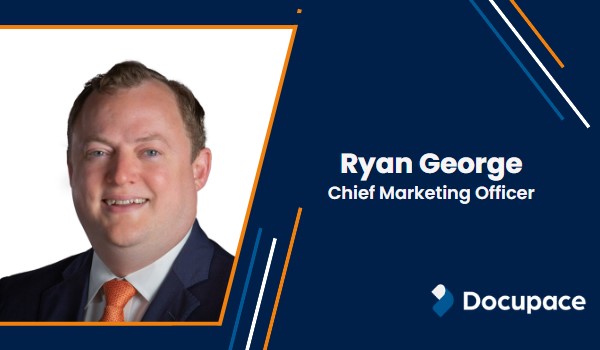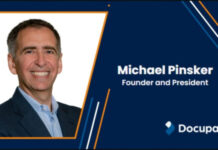Wealth management firms have a hard time growing without finding some mechanism to find the clients that they want to serve—a process called lead generation.
But most firms in the industry are taking an ineffective path towards lead generation, said Ryan George, chief marketing officer of Docupace, a workflow automation platform operating in the back offices of wealth management practices.
“Wealth managers aren’t growing right, “ he said. “I think what we know now, what we’ve seen over the past decade, is a lot of advisory firms have grown, but it’s mostly not from getting new clients on board clients. It’s actually grown from the market appreciation, which has been beneficial to the advisors, however, it does have a limited, a limited impact on the growth of the actual business.”
Keep It Simple
George says that advisors are struggling to connect with the clients they want to serve, even in an era where demand for financial advice is at an all-time high, and part of the reason is that they’re over-complicating the lead generation process.
For example, when wealth management firms start on their marketing journey, they often dive right into creating monthly, bi-monthly or weekly webinars, videos, podcasts or newsletters, which George argued is the wrong approach.
“A webinar, newsletter or podcast monthly or twice a month is committing to 12 or 24 new content items, which require an ongoing commitment of time and resources before you’ve proved its effectiveness,” said George. “So I think: Start small and measure along the way. Starting small and measuring, I think that is the easiest way to do it. Don’t over commit yourself.”
Generic Doesn’t Work
George warned that many firms first take an overly broad or scatter-shot approach to marketing, which fails to unearth the clients that they most want to serve.
Advisors diving into lead generation and marketing for the first time are also likely to choose traditional, inexpensive methods of outreach like cold calling and direct mail, said George, without thinking about the effectiveness of their choice.
“Technology and tools make it easy. but it doesn’t mean you should do it,” he said. “For instance, one of the things that I guess buys is mass marketed spam text messages. I feel like that’s an intrusion to my phone, right? Like I didn’t ask for it. I didn’t sign up for it, why are you sending this to me? I actually have on my cell phone a toggle switched to where, if my phone doesn’t recognize you, it automatically sends them to voicemail. So I think those robo-calls and cold calls are proven not to work anymore. Just because it costs you almost nothing doesn’t mean it is the right answer.”
Cold calls and robo-calls are terrible ways to start off an advisor-client relationship, said George, because they are inevitably generic and impersonal. Direct mail, on the other hand, may still work, particularly if the advisor is targeting a niche of older retirees within a small geographic area. Direct mail can also to a greater extent be personalized and be used to send personalized gifts or tchotchkes to clients and prospects.
“Anything that is mass-distributed and mass-targeted is likely to be disappointing when it comes to generating leads,” said George. “Any item you’re messaging something that doesn’t matter or mean anything to the person who is receiving it, you’re probably doing yourself—or your brand—in.”
Where To Start
Instead of starting with an investment in a method of outreach, George argues that advisors should first think about their ideal clients and where those clients might be found.
“If you can identify which client relationships you want to replicate, then I would figure out a way to have the advisor or an assistant have a 30 min conversation with them about what would resonate,” said George. “Be forward and up front. Say, ‘I’m looking to grow my business and serve more people like you. A, Do you know anybody and, B, Can we have a conversation about what you think would resonate the most with people like you.’ I think that’s a good place to start.”
While recent regulatory changes have cleared the way for wealth management firms to use more client testimonials, George cautioned that firms should have a clear grasp of the new rules and craft testimonials around their ideal clients and prospects first before asking a client to vouch for them in an advertisement. Finding a strong niche in which to operate is key to being able to create effective testimonials.
Building a brand for the advisor’s business goes hand-in-hand with finding a niche, said George, who added that much of the brand-building pushed by marketing consultants and engaged in by advisors is too inwardly focused.
“Tech people, advisors, they all seem to be encouraged to do things to build their brand within the industry, but not necessarily within a client base or within their community,” said George. “There’s a lot of energy and effort around becoming a thought leader within the industry, among other advisors, which is great and has value, but that isn’t likely to be the objective of what they’re looking for with their marketing.”
Prospective clients are unlikely to trade in the same circles as financial advisors, said George. Advisors need to think both about the identities of their ideal clients and about who they are as advisors—so if an advisor really likes the process of creating, revising and executing financial plans, they should make that part of their brand. If they really love serving women breadwinners, then that should be an identifiable part of their brand.
Don’t Drop The Tried-And-True
To this point, the forms of lead generation financial advisors that have enjoyed the most success are referrals, either from current clients or from centers of influence like attorneys and tax professionals.
“Yes, you should still keep in mind the dance that got us here, but you need to concentrate most on the methods of lead generation that work best for you,” said George. “Advisors newsletters, for example, are everywhere. I’ve been in this industry for long enough, I probably get 20 different advisor newsletters every month—I don’t read them because I don’t need to—but the ones that are the most interesting, to me, are the ones that don’t tell me all the stuff that happened in the market over the past month—that’s already old news. The ones that stand out are the ones that tell me something I’ve been looking for or that discuss something specific to me.”
To learn more about how Docupace can help your firm, click here to schedule a discovery session.







